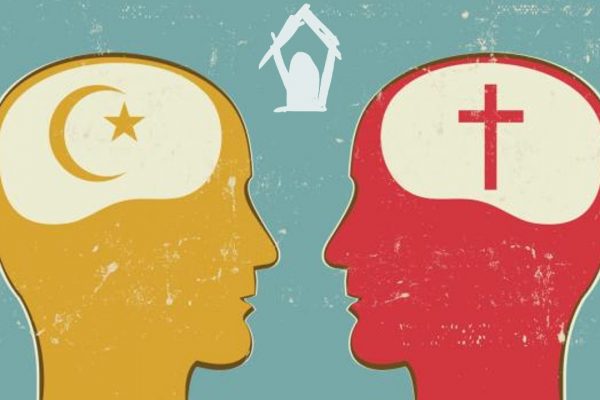“I believe that it is morally imperative for the descendants of Isaac and Ishmael to find ways to coexist and cooperate for the common good.”
“I believe that it is morally imperative for the descendants of Isaac and Ishmael to find ways to coexist and cooperate for the common good.”
Every year Jews worldwide read Genesis chapters 21 and 22 on the first and second days of Rosh Hashanah in conservative and Orthodox synagogues around the world. Reform Rabbi Ron Kronish, Founding Director the Interreligious Coordinating Council in Israel (ICCI), writes:
“I have always been mindful that on these very special days—our ‘High Holidays’—we read about Ishmael as well as Isaac. Reading about the patriarch of the Arab people is part of our Jewish tradition because these foundational events are essential to our identity as Jews and Chapter 21—the story of the birth and banishment of Ishmael—establishes our Jewish connection to all of God’s children.
“When God saw that Ishmael was suffering and about to die, the text tells us that the God of the Hebrew Bible hears the voice of all children, including Ishmael, where they are at, in their existential situations, in their suffering and misery, as well as in their joyous and hopeful moments, anywhere in the world. This is a universal God, as we learned from earlier in Genesis, whereby every human being is created in the image of God.
“After these events we next hear about Prophet Ishmael a few chapters later, when Prophet Isaac and Prophet Ishmael meet again (Genesis 25:9) at the funeral of their father Prophet Abraham. Estranged brothers (or sisters) meeting at the funeral of a parent; ever heard of that in some contemporary families?
“Rabbi Harold Kushner, the editor of the Conservative movements Etz Chaim commentary on the Torah, offers this poignant commentary on this verse: ‘Isaac and Ishmael are reunited at their father’s funeral, a sign that Ishmael has changed his ways and matured. Although he could not have forgotten how his father treated him; Prophet Ishmael had [long ago] forgiven Abraham for having been a less-than-perfect father’”.
These reconciliations would be why the Torah’s describes Abraham as ‘contented’ in his old age. Can we see this as a [very good] model for family reconciliations [today by] forgiving old hurts? And can it also be a model for the descendants of Ishmael and Isaac, contemporary Arabs and Israeli Jews, to find grounds for forgiveness and reconciliation? Rabbi Kronish continues:
“Can the descendants of Isaac and Ishmael reconcile with each other, and reduce the number of funerals [in the Middle East]? In other words, can Jews and Muslims in the contemporary world coexist with one another? In Israel? In America? Wherever Jews and Muslims are living in the same communities, countries and regions?”
Rabbi Kronish’s answer is Yes: “But it is not that simple. Jews and Muslims have to overcome some deeply ingrained negative stereotypes of each other. Some of this comes from our understanding –or purposeful misunderstanding — of our sacred texts, which can be very problematic and often lead to negative stereotyping.
“Some of it comes from our limited understanding of our histories, which are often inaccurate and incomplete. Much of it comes these days from the mainstream media and from social media, which often spread disinformation about each other’s religions and cultures viciously and virally in very destructive ways.”
Rabbi Kronish’s message in his blog post is brief and clear: “I believe that it is morally imperative for the descendants of Isaac and Ishmael to find ways to coexist and cooperate for the common good for 3 reasons:
First, Qur’an and Torah teaches us that this is the correct thing to do.
Second, our understanding of history should help us understand why this is essential now.
And third it is in our enlightened self-interest to do so.
It is time to choose reconciliation rather than retribution between Jews and Muslims in this world. The time for enmity is over. It is time to find another path, one of coexistence and cooperation, for the benefit of all concerned.”
This piece was collaboratively written by Rabbi Dr Ron Kronish and Rabbi Allen Maller.





